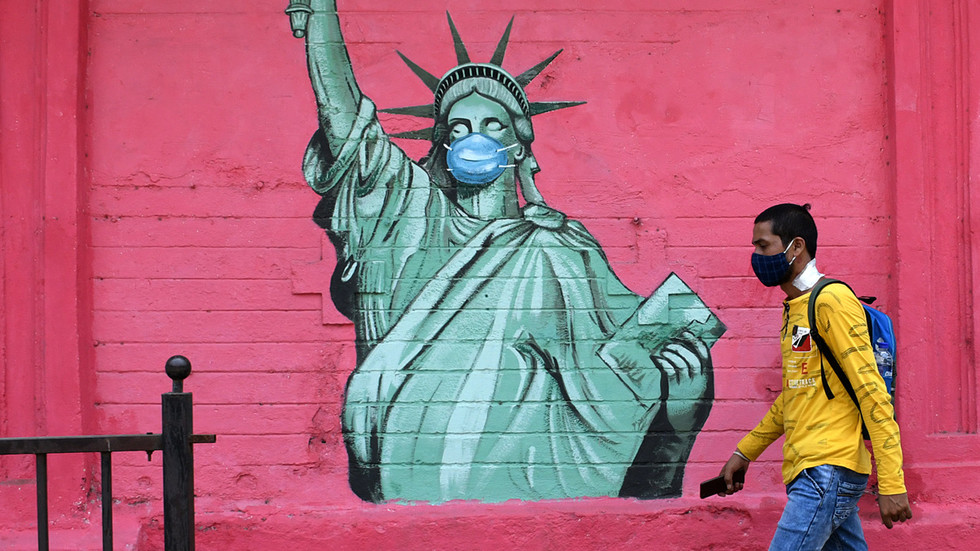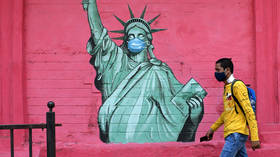
Modi’s key adviser says the assessments are having a direct impact on trade and investment

© Global Look Press / Ashish Vaishnav
The Indian authorities will push back against country rankings compiled by global agencies that are promoting the interests of a tiny group that is driving a real-world agenda, according to a top adviser to Indian Prime Minister Narendra Modi, as quoted by Reuters.
The South Asian nation has been placed lower than Afghanistan and Pakistan in the latest World Press Freedom Index. Published every year by Reporters Without Borders, the index analyzes legal and physical threats to journalists to rank the level of press freedom in 180 countries. India was also placed below Pakistan and Bhutan in an academic freedom index led by Varieties of Democracy (V-Dem) Institute of Sweden.
Indices are being put together by a “tiny group of think tanks in the North Atlantic,” funded by several agencies that are “driving a real-world agenda,” according to Sanjeev Sanyal, a member of Modi’s Economic Advisory Council, who added that New Delhi has begun to raise this issue at global forums.
“It is not just narrative building in some diffused way. This has a clear direct impact on trade, investment and other activities,” he said in an interview with the news agency.

Sanyal added that, over the past year, the Indian authorities have pointed out flaws in methods of compiling global indices deployed by such major institutions as the World Bank, World Economic Forum (WEF) and the United Nations Development Program (UNDP).
“The World Bank is involved in this discussion because it takes these opinions from these think tanks and effectively sanctifies it by putting it into something called the world governance index,” Sanyal said.
The top official added that those rankings were getting hard-wired into decision-making through environmental, social and governance (ESG) norms and sovereign ratings, while multilateral development banks offer subsidized loans to ESG-compliant projects.
“There are other developing countries who are also concerned about this because effectively this is a form of neo-colonialism,” the top official said, adding that the relevant ministries had been asked to establish benchmarks and engage continuously with ratings agencies.
For more stories on economy & finance visit RT’s business section




